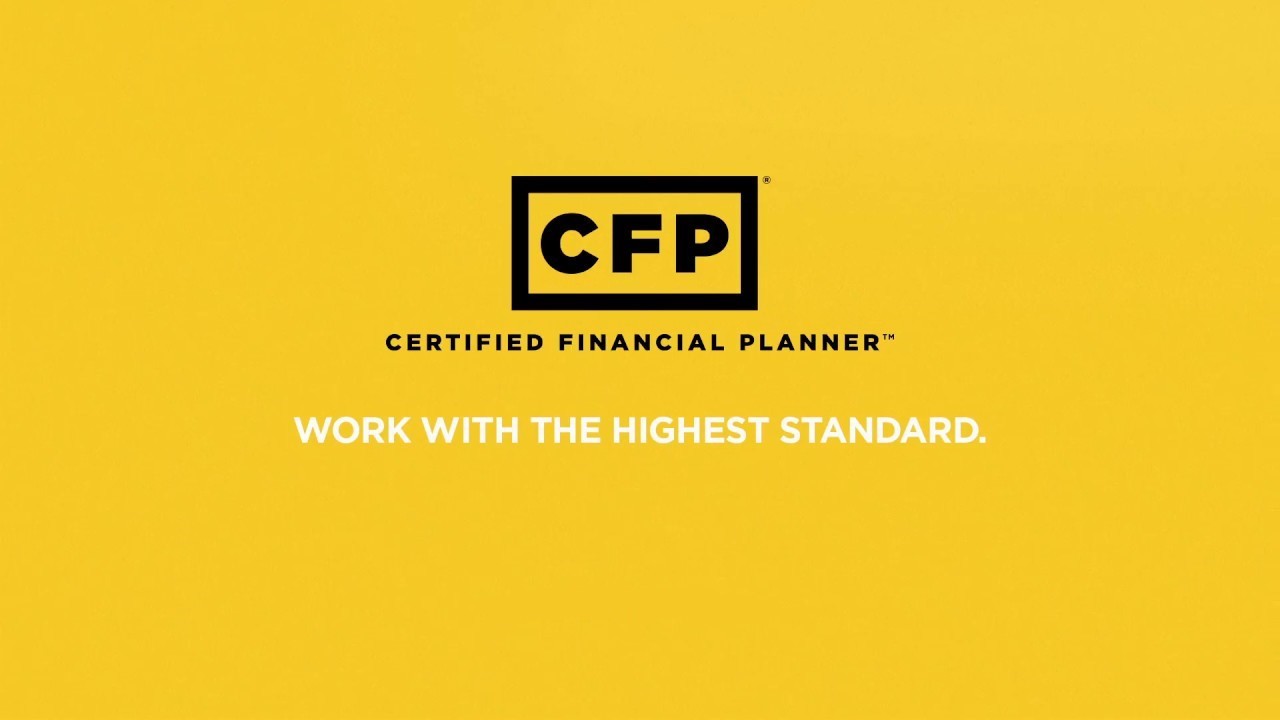Blog

Obtaining the CFP® Designation
I was recently lucky enough to have taken and passed the final exam in earning my CERTIFIED FINANCIAL PLANNER (CFP®) designation. Currently, according to the CFP Board’s website there are 92,055 active CFP professionals in the United States. This represents approximately 15% of all registered representatives currently eligible to sell securities in the US. I make this distinction between CFP’s and other representatives not to pat myself on the back, but to highlight to end consumers that there are many different flavors of “financial advisors” that you may come across. It is important to consider what type of advice and planning you are looking for and ensure that whomever you engage is qualified and held to a high standard.
What is the Difference Between a CFP® professional and other “financial advisors”?
A CFP® professional is one of many types of financial advisors. A financial advisor must earn the right to call themselves a CFP® professional. Anyone can call themselves a financial advisor, because it’s a general term but here are a few considerations to why one might consider working with a CFP® professional.
Credentials
A financial advisor that earns the rights to use the CFP® marks shows an expertise towards financial planning, a level of professionalism, and distinguishes themselves for clients. If working with a qualified financial advisor is important to you, then make sure they are a CFP® professional.
Education
A CFP® professional is required to show a commitment towards continuing education. There is no requirement a financial advisor to earn a college degree or receive advanced financial planning education. If working with an educated financial advisor is important to you, then make sure they are a CFP® professional.
Experience
A financial advisor must accumulate approximately three years of work experience before using the CFP® marks. There is no requirement for financial advisor to have work experience before selling securities. If working with an experienced financial advisor is important to you, then make sure they are a CFP® professional, and ask how long they have been offering financial advice.
Ethics
A financial advisor must adhere to a higher ethical standard and serve clients as a fiduciary when providing financial advice to clients before using the CFP® marks. Most financial advisors are not held to similar ethical or fiduciary standards. If working with an ethical financial advisor is important to you, then make sure they are a CFP® professional.
What does it take to become a CERTIFIED FINANCIAL PLANNER™?
According to the CFP Board, typically, it takes 18-24 months to become a CFP® professional. To become a CFP® professional, a financial advisor must meet requirements for education, exam, experience, and ethics.
Education
To satisfy the education requirement, a financial professional must first earn a bachelor’s degree from an accredited college or university. Then, a financial professional must complete a CFP board educational program consisting of classes focused on: financial planning process and insurance, investment planning, income tax planning, retirement planning and employee benefits, estate planning, and financial plan development. Certain professionals may qualify for an accelerated education path.
Exam
To satisfy the exam requirement, a financial professional must pass the CFP® exam consisting of a six-hour multiple choice exam.
Experience
To satisfy the experience requirement, a financial professional must accumulate 6,000 hours of professional experience related to the financial planning.
Ethics
To satisfy the ethics requirement, a financial professional must adhere to high ethical and professional standards for the practice of financial planning, and to act as a fiduciary when providing financial advice to clients.
A Certified Financial Planner™ is held to a higher standard than other financial advisors and is required to serve as a fiduciary at all times when providing financial advice. Essentially, this means we are ALWAYS required to ensure the client’s best interest are kept front and center when working with them. Whether you are already a client or are looking for your own financial advisor, consider the importance of designations and their experience when making your selection.
